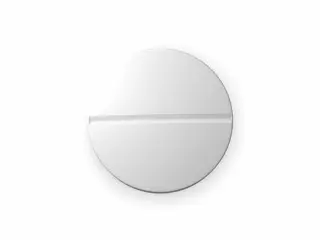Diabetes
Find effective medications and supplies for diabetes management, including insulin, glucose monitors, and supplements, to support your health and help maintain stable blood sugar levels. Shop trusted brands with confidence and convenient delivery.
Diabetes is a chronic condition that affects the way the body processes blood sugar. Managing blood sugar levels is crucial for people living with diabetes. There are many medications available. Each works differently to control glucose levels. Understanding popular diabetes medicines helps patients choose wisely.
Actos (pioglitazone) is a medication used to improve insulin sensitivity. It belongs to the thiazolidinedione class. Actos helps muscles and fat cells use insulin better. It reduces blood sugar levels in type 2 diabetes. Patients often take it once daily. Side effects may include weight gain and fluid retention. It is not for people with heart failure.
Amaryl (glimepiride) belongs to sulfonylureas. It stimulates the pancreas to release more insulin. Amaryl is usually taken once a day before a meal. It helps lower blood sugar effectively. Hypoglycemia or low blood sugar can occur if meals are missed. It is important to monitor blood glucose regularly.
Glucophage (metformin) is one of the most commonly prescribed diabetes drugs. It lowers glucose production in the liver. Glucophage also enhances insulin sensitivity. It is typically taken two or three times daily with meals. Metformin rarely causes hypoglycemia. Some patients may experience stomach upset initially. It is recommended for most type 2 diabetes patients.
Glucophage SR is a sustained-release form of metformin. It allows for once-daily dosing. This improves compliance for some patients. Side effects are similar to regular metformin but often milder. This form gradually releases the drug over time.
Glucotrol (glipizide) is another sulfonylurea. It lowers blood sugar by increasing insulin release. Glucotrol is usually taken 30 minutes before a meal. There is a risk of hypoglycemia, especially in older patients. It is effective for controlling post-meal glucose spikes.
Glucotrol XL is an extended-release form of glipizide. It offers once-daily dosing. This can lead to steady blood sugar control throughout the day. The slow release reduces side effects like hypoglycemia.
Glucovance combines metformin and glyburide. It targets two different mechanisms. Metformin lowers liver glucose, and glyburide boosts insulin release. This combination helps when single medicines do not control glucose enough. It is usually taken twice daily with meals. The risk of hypoglycemia is higher than with metformin alone.
Glycomet is another brand of metformin. It works the same way by reducing liver glucose and increasing insulin sensitivity. Glycomet is available in various doses and formulations. Patients may find it convenient for flexible dosing schedules.
Micronase (glyburide) is a sulfonylurea that stimulates insulin secretion. It is taken once or twice daily with food. Micronase helps lower blood sugar effectively. Like other sulfonylureas, hypoglycemia is a common side effect. Careful monitoring is important when using this medicine.
Prandin (repaglinide) is a meglitinide class drug. It stimulates rapid insulin release after meals. Prandin must be taken just before eating. It helps control post-meal blood sugar spikes. It is less likely to cause hypoglycemia than sulfonylureas because it is short-acting.
Precose (acarbose) works by slowing carbohydrate digestion in the intestines. This delays glucose absorption and prevents high blood sugar after meals. Precose is taken with the first bite of a meal. It can cause gastrointestinal side effects like gas and diarrhea. It is often used in combination with other diabetes drugs.
Rybelsus (semaglutide) is a newer medication in pill form. It belongs to GLP-1 receptor agonists. Rybelsus increases insulin release only when blood sugar is high. It also slows stomach emptying and reduces appetite. Patients often lose weight while using this drug. It is taken once daily and may cause nausea initially. Rybelsus is a good option for type 2 diabetes management with added weight benefits.
In summary, medicines for diabetes come in many types. Some improve insulin production. Others increase insulin sensitivity or delay sugar absorption. Combination drugs combine effects for better control. Patient choice depends on many factors. These include blood sugar levels, side effects, and lifestyle. Doctors help tailor therapy to each patient’s needs. With proper use, these medicines greatly improve quality of life for people with diabetes.











